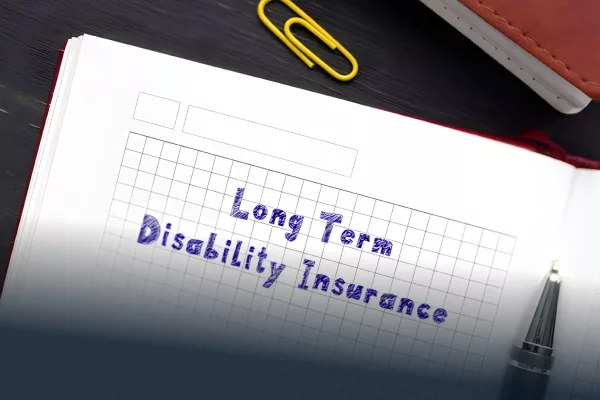
Long-term disability insurance provides financial security when an individual cannot work for an extended period due to a disabling illness or injury. This type of insurance is imperative for maintaining one's livelihood and managing healthcare costs without the regular income from employment. It ensures that individuals who can no longer perform their job duties due to serious health issues can continue to receive a portion of their income. At Patel Social Security Disability Lawyers, we understand the vital role that long-term disability insurance plays in our clients' lives.
Successfully applying for long-term disability insurance requires a thorough knowledge of the policies, the claims process, and the legalities involved. Our firm is dedicated to guiding clients through each step of their claim, ensuring they receive the benefits they deserve. Our expertise lets clients focus on their health and recovery, knowing their financial concerns are professionally managed. We advocate vigorously for our clients, challenging denials and negotiating with insurance companies to secure the best possible outcomes.

Long-term disability insurance kicks in after a short-term disability policy expires, typically providing financial assistance for years or until the policyholder can return to work or reaches retirement age. This type of insurance is designed to replace a portion of the policyholder’s income, usually between 50% and 70%, during extended illness or injury periods. The benefits are helpful for anyone who cannot work for an extended period.
The specifics of long-term disability insurance, such as the duration of benefits and the definition of disability, can vary considerably between different policies. Policyholders must be familiar with their plan's details, including any exclusions and limitations that may affect coverage. This helps them plan for the future and ensures they are adequately prepared for health-related uncertainties.
Eligibility for long-term disability insurance typically depends on the policyholder’s employment status and the specific policy requirements. Most policies require the insured to have been employed for a certain period and covered under the policy before the onset of disability. These criteria ensure that the benefits are only provided to those with a legitimate claim.
To be eligible, the policyholder must also provide proof of their disability, usually verified through medical records and assessments by qualified medical professionals. The definition of disability can vary, but it generally includes the inability to perform your job due to mental or physical impairments. Knowing these eligibility requirements is crucial for anyone considering filing a claim.

Awareness of how long-term disability insurance interacts with other benefits is crucial for maximizing your financial support during disability. This type of insurance often coordinates with Social Security disability insurance (SSDI) and worker’s compensation, adjusting the benefits accordingly to prevent excessive compensation. You must report any additional benefits you receive to your long-term disability insurer to comply with your policy terms.
The interaction between different benefits can be complex, involving specific calculations to determine the total amount payable to the insured. For instance, your long-term disability benefit may be reduced by the amount you receive from SSDI or similar resources. Effective management of these benefits requires a comprehensive familiarity with various policies and the laws governing disability benefits.

Handling long-term disability claims can be a stressful process fraught with complex paperwork and strict compliance requirements. Legal representation is a must to ensure that your rights are protected and that you receive the benefits you are entitled to under your policy. An experienced disability attorney can provide guidance on the specifics of your policy, help gather the necessary documentation, and represent you in dealings with your insurance provider.Having legal support is especially important if your claim is denied. A qualified disability lawyer can review the reason for denial, help you gather additional evidence, and represent you in any necessary appeals or negotiations. At Patel Social Security Disability Lawyers, we understand the impact a denied claim can have on your life and are committed to helping you secure your rightful benefits.
The maximum duration of benefits can vary based on your policy terms, but typically, long-term disability benefits last until you can return to work or until you are 65.
Yes, some policies allow "own occupation" disability benefits, where you can work in a field different from your previous employment and still receive benefits. However, any income earned may offset your benefit amount.
Your benefits would likely be tax-free if you paid the premiums with after-tax dollars. If your employer paid for the policy, the benefits might be taxable.
You should apply as soon as you realize that your disability will extend beyond the short-term disability benefits period or when your doctor can certify your condition as a long-term disability.
You should consult with a disability lawyer to review your claim, identify any issues, and determine the best action for an appeal.

If you're facing a long-term disability and are unsure about your insurance coverage, contact Patel Social Security Disability Lawyers today. Our experienced team can help clarify your insurance policy, assist in the claim filing process, and represent you in disputes or appeals. Reach out for a free consultation, and let us help you secure the benefits you need to support your well-being and financial stability.